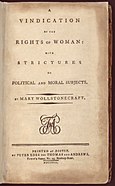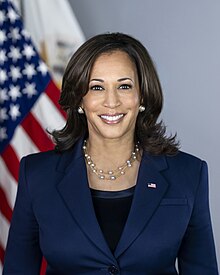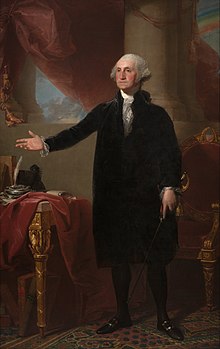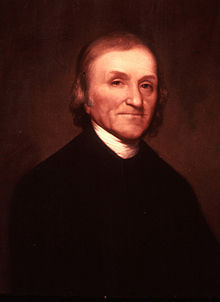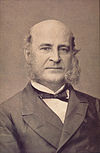
Back Portal:Politik ALS بوابة:السياسة Arabic بوابة:سياسة ARZ Портал:Политика Bulgarian প্রবেশদ্বার:রাজনীতি Bengali/Bangla Portal:Politika BS دەروازە:سیاسەت CKB Portál:Politika Czech Portal:Politik German Portal:Siyaset DIQ
| Main | Topics and categories | Tasks and projects |
The Politics portal
Politics (from Ancient Greek πολιτικά (politiká) 'affairs of the cities') is the set of activities that are associated with making decisions in groups, or other forms of power relations among individuals, such as the distribution of status or resources. The branch of social science that studies politics and government is referred to as political science.
Politics may be used positively in the context of a "political solution" which is compromising and non-violent, or descriptively as "the art or science of government", but the word often also carries a negative connotation. The concept has been defined in various ways, and different approaches have fundamentally differing views on whether it should be used extensively or in a limited way, empirically or normatively, and on whether conflict or co-operation is more essential to it.
A variety of methods are deployed in politics, which include promoting one's own political views among people, negotiation with other political subjects, making laws, and exercising internal and external force, including warfare against adversaries. Politics is exercised on a wide range of social levels, from clans and tribes of traditional societies, through modern local governments, companies and institutions up to sovereign states, to the international level.
In modern nation states, people often form political parties to represent their ideas. Members of a party often agree to take the same position on many issues and agree to support the same changes to law and the same leaders. An election is usually a competition between different parties.
A political system is a framework which defines acceptable political methods within a society. The history of political thought can be traced back to early antiquity, with seminal works such as Plato's Republic, Aristotle's Politics, Confucius's political manuscripts and Chanakya's Arthashastra. (Full article...)
Selected article
A Vindication of the Rights of Woman is a 1791 book of feminist philosophy by Mary Wollstonecraft. In it, Wollstonecraft responds to the educational and political theorists of the eighteenth century who wanted to deny women an education. She argues that women ought to have an education commensurate with their position in society, claiming that women are essential to the nation because they educate its children and because they could be "companions" to their husbands, rather than mere wives. Instead of viewing women as ornaments to society or property to be traded in marriage, Wollstonecraft maintains that they are human beings deserving of the same fundamental rights as men. Wollstonecraft was prompted to write the Rights of Woman by Charles Maurice de Talleyrand-Périgord's 1791 report to the French National Assembly which stated that women should only receive a domestic education; she used her commentary on this specific event to launch a broad attack against sexual double standards and to indict men for encouraging women to indulge in excessive emotion. Wollstonecraft wrote the Rights of Woman hurriedly in order to respond directly to ongoing events; she intended to write a more thoughtful second volume, but she died before completing it.
Featured picture

Photo taken by a Lockheed U-2 spy plane of the San Cristobal MRBM launch site in Cuba, November 1962, after the Cuban Missile Crisis. Although this image was taken days after the crisis had ended (October 28), this image has become iconic of the crisis to the point where it is often cited incorrectly as having been taken during the crisis.
Selected quote
Selected biography
José Paranhos, Viscount of Rio Branco (1819–1880) was a politician, monarchist, diplomat, teacher and journalist of the Empire of Brazil. In 1871, Rio Branco became the President of the Council of Ministers (Prime Minister) for the first time. He would become the Council's longest-serving president, and his cabinet the second longest, in Brazilian history. His government was marked by a time of economic prosperity and the enactment of several necessary reforms—though they proved to be seriously flawed. The most important of these initiatives was the Law of Free Birth, which granted freeborn status to children born to slave women. Rio Branco led the government that enacted this law, and its passage increased his popularity. However, his government was plagued by a long crisis with the Catholic Church that had resulted from the expulsion of Freemasons from its lay brotherhoods. After more than four years heading the Cabinet, Rio Branco resigned in 1875. Following a long vacation in Europe, his health swiftly declined and he was diagnosed with oral cancer. Rio Branco died in 1880 and was widely mourned throughout the country. He is regarded by most historians as one of Brazil's greatest statesmen.
Did you know (auto-generated) -

- ... that Iraqi poet Kazim al-Samawi spent more than half his life in political exile and was called "The Sheikh of the Exiles"?
- ... that in the 1916 Declaration of Sainte-Adresse Britain, France and Russia committed to securing the political and economic independence of Belgium after the First World War?
- ... that Angel Joy Chavis Rocker, a guidance counselor with no political experience, was the first black woman to run for President of the United States as a Republican?
- ... that as part of its strategy of political renovation, National Convergence nominated a librarian to contest one of Bolivia's most competitive legislative districts?
- ... that the only purpose of the Delaware Straight-Out Truth Teller was to promote a political candidate?
- ... that Prawoto Mangkusasmito did not complete law school before the Japanese invaded because he was too busy with student and political organizations?
More did you know...
- ...that Thutmose I was the first Pharaoh to be buried in the Valley of the Kings?
- ...that Nazi scientists claimed to have trained a dog to call "Adolf Hitler" as "Mein Führer"?
- ...that for many years, the Russian Soviet Republic did not have its Communist Party?
- ...that the World War II idea of Polish-Czechoslovakian confederation was eventually discarded by the Czechs, whose leader chose instead to believe in the Soviet Union promises of alliance?
- ...that although U.S. President Barack Obama is Christian, high-ranked al-Qaida member Ayman al-Zawahiri has falsely claimed that Obama secretly "pray[s] the prayers of the Jews"?
- ...that the controversial Iraq De-Ba'athification policy banned anyone affiliated with the Ba'ath Party from working in the public sector?
In this month
- January 1, 1912 – The Republic of China was proclaimed.
- January 4, 2011 – Tunisian street vendor Mohamed Bouazizi dies after setting himself on fire a month earlier, sparking anti-government protests in Tunisia and later other Arab nations. These protests become known collectively as the Arab Spring.
- January 5, 1912 – Vladimir Lenin and the Bolshevik Party break away from the rest of the Russian Social Democratic Labour Party.
- January 12, 1729 – Edmund Burke was born, considered to be the philosophical founder of modern conservatism.
- January 25, 2006 – Hamas wins a victory in the Palestinian legislative election, taking 76 of the 132 seats.
News and Current events
- August 11: 4 local government areas in New South Wales, Australia locked down after COVID-19 case
- August 11: Australia: AstraZeneca vaccine access expanded by Victorian government
- August 1: Australia: Victorian lockdown lifted
- July 29: Tunisia's president dismisses prime minister, suspends parliament
- July 25: Australia: Wikinews interviews Reg Kidd, mayor of the City of Orange, about COVID-19 lockdown and local government
- July 23: South Australia enters week-long lockdown to contain COVID-19 Delta variant spread
- July 21: Technological University Dublin senior lecturer Dr Lorcan Sirr speaks to Wikinews on housing market in Ireland
- July 21: Three rural councils in New South Wales, Australia enter 7-day lockdown
- July 21: Australia: Victoria lockdown extended by a week with 85 active cases recorded
- July 15: California governor signs new state budget, eligible Californians to get stimulus payments
Topics and categories
General images
Related portals
Associated Wikimedia
The following Wikimedia Foundation sister projects provide more on this subject:
-
Commons
Free media repository -
Wikibooks
Free textbooks and manuals -
Wikidata
Free knowledge base -
Wikinews
Free-content news -
Wikiquote
Collection of quotations -
Wikisource
Free-content library -
Wikiversity
Free learning tools -
Wiktionary
Dictionary and thesaurus
